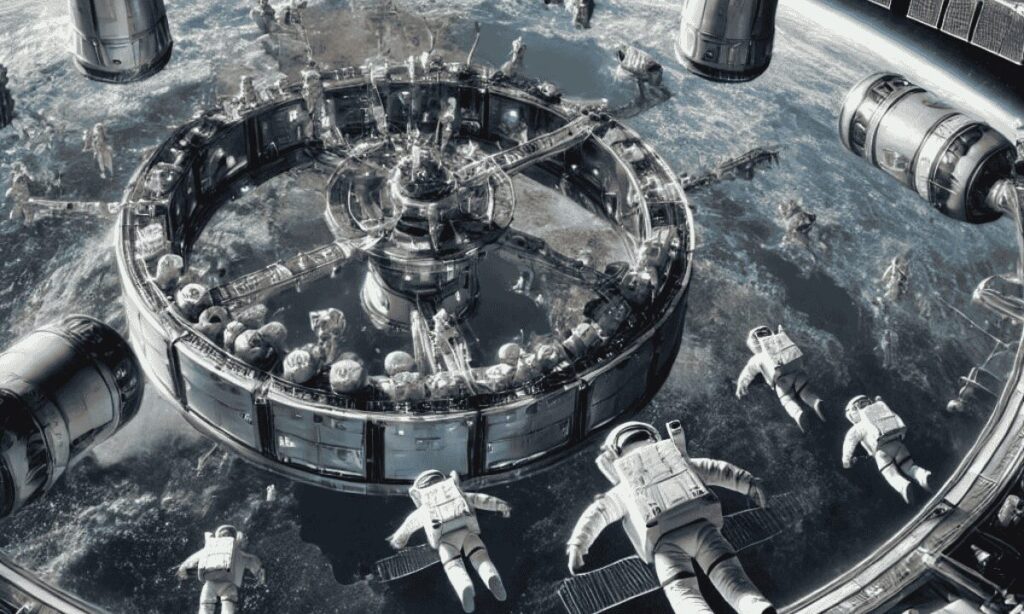The future of Space tourism, once a fantastical dream, is rapidly transitioning from the realm of science fiction to a tangible reality. As technology advances and commercial space enterprises flourish, the future of space tourism promises to be a thrilling, transformative industry. But what exactly does this future hold, and how will it reshape our understanding of travel and exploration?
A New Frontier: The Rise of Commercial Space Flights

In recent years, companies like SpaceX, Blue Origin, and Virgin Galactic have captured the public’s imagination with their groundbreaking strides in commercial space travel. These industry pioneers are laying the foundation for a new era, where space tourism is not just a privilege for astronauts but an accessible adventure for everyday citizens. With successful missions and the development of reusable rockets, space travel costs are expected to decrease, opening the doors to a broader audience.
The allure of venturing beyond Earth’s atmosphere is undeniable. The breathtaking view of our planet from space, the sensation of weightlessness, and the experience of crossing the Kármán line, the boundary of space, are just a few of the wonders that await future space tourists. As the industry matures, we can expect more luxurious and extended space journeys, potentially leading to stays in orbiting space hotels or even on the Moon.
What Will Space Tourism Look Like?

The future of space tourism is set to evolve in stages, starting with suborbital flights, where passengers will experience a few minutes of weightlessness and a spectacular view of Earth from the edge of space. Companies like Virgin Galactic are already offering these brief yet unforgettable experiences, with commercial flights expected to increase in frequency over the coming years.
As technology advances, the next step will be orbital tourism. This involves longer journeys that allow passengers to circle the Earth, experiencing several sunrises and sunsets in a single day. SpaceX has already announced plans for private missions that will orbit the Earth, giving space tourists a taste of life as astronauts.
In the distant future, lunar tourism and even Mars exploration could become viable options. Elon Musk’s SpaceX has ambitious plans for Mars colonization, and while this may still be decades away, the groundwork is being laid for a future where humans are no longer confined to Earth. These developments hint at the possibility of interplanetary travel, where space tourism could extend to distant celestial bodies.
Challenges and Considerations
While the prospects for space tourism are exhilarating, significant challenges remain. Safety is the foremost concern, as space travel involves inherent risks, from launch to re-entry. As more people venture into space, regulatory frameworks and safety protocols will need to evolve to protect passengers and crew.
Cost is another significant barrier. Despite advancements in technology, space travel remains prohibitively expensive for most people. However, as the industry scales and competition increases, prices are expected to drop, making space tourism more accessible to the masses.
Environmental concerns also cannot be overlooked. The carbon footprint of rocket launches is substantial, and with the increase in space travel, there will be a growing need to address the environmental impact. Research into more sustainable technologies and practices will be crucial to ensuring that space tourism does not come at the cost of our planet’s health.
The Broader Impact of Space Tourism
Beyond the thrill of adventure, space tourism has the potential to drive significant advancements in technology, science, and international cooperation. The development of new materials, propulsion systems, and life-support technologies for space tourism could have far-reaching applications on Earth. Moreover, as more people experience the overview effect—the profound shift in perspective that comes from seeing Earth from space—there may be a stronger global push for environmental stewardship and peaceful coexistence.
In conclusion, the future of space tourism is bright, filled with possibilities that once seemed impossible. As we stand on the brink of a new era in human exploration, the sky is no longer the limit; it is just the beginning. What awaits us beyond the stars is not just a journey through space but a journey toward a deeper understanding of our place in the universe.
FAQs
How soon will space tourism be available to the public?
Suborbital space tourism is expected to become more widely available within the next few years, with companies like Virgin Galactic and Blue Origin leading the charge.
What will space tourists experience during a trip?
Space tourists can expect to experience weightlessness, stunning views of Earth from space, and a few minutes of floating in microgravity.
Is space tourism safe?
While space travel inherently carries risks, companies are developing rigorous safety protocols to protect passengers. However, as with any form of travel, absolute safety cannot be guaranteed.
How much does a space tourism ticket cost?
Currently, space tourism tickets are priced in the hundreds of thousands of dollars, but prices are expected to decrease as the industry grows.
Will space tourism harm the environment?
The environmental impact of space tourism is a concern, particularly due to the carbon emissions from rocket launches. Efforts are being made to develop more sustainable space travel technologies.
Could space tourism lead to space colonization?
Space tourism is seen as a stepping stone towards more ambitious goals like space colonization, with companies like SpaceX already working towards human settlement on Mars.

I have been browsing on-line more than three hours lately, but I by no means discovered any attention-grabbing article like yours. It is lovely price sufficient for me. In my view, if all website owners and bloggers made excellent content as you probably did, the web can be much more useful than ever before.
Thank you so much for taking the time to share your thoughts! Your feedback means the world to us and helps make our site even better. We love hearing your perspectives and ideas, so keep them coming. Whether it’s a question, suggestion, or just sharing your experiences, we truly appreciate your engagement. Stay tuned for more exciting content, and don’t hesitate to let us know how we can make your experience even better!